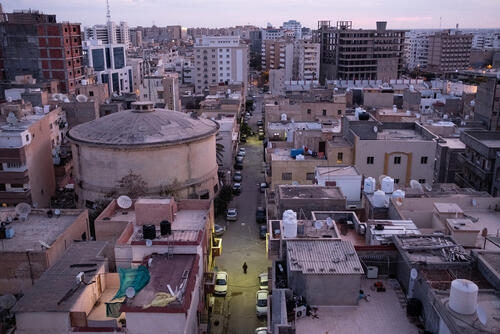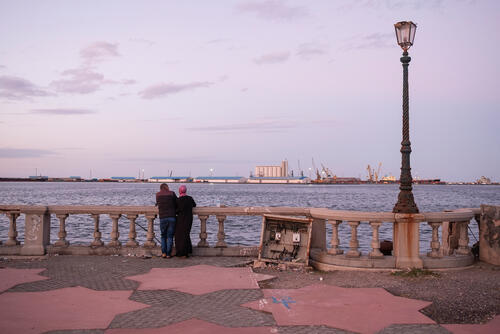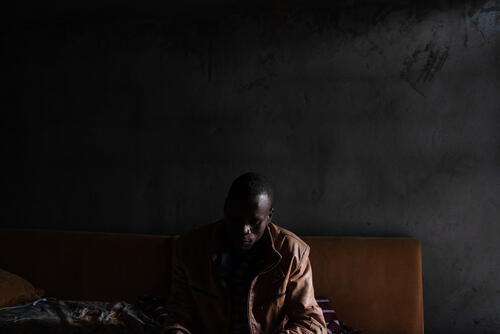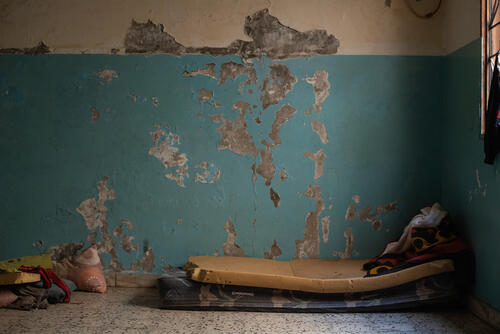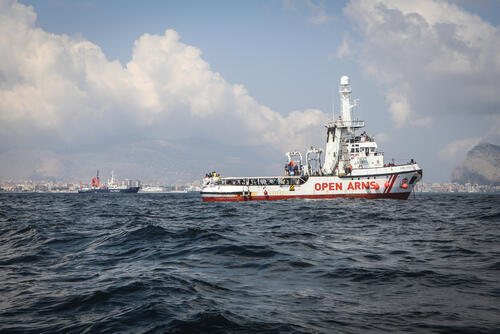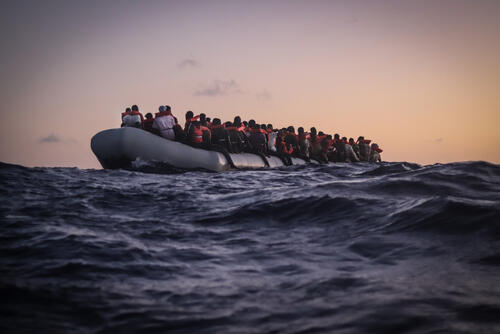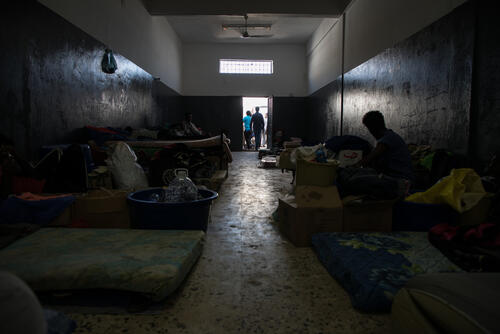The combination of several worrying developments – an escalating armed conflict, the arrival of COVID-19 to a war-torn country with a collapsing healthcare system and the reduction of the humanitarian space available for organisations due to travel and security restrictions – is creating a crisis within a crisis in Libya and could ultimately become a humanitarian catastrophe.
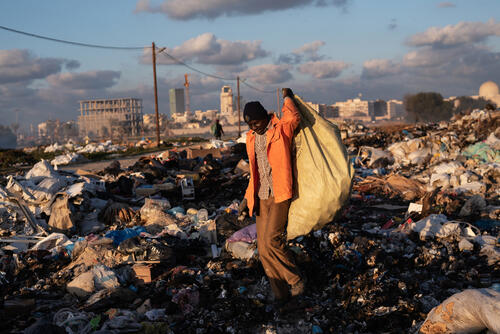
Libya finds itself with the colliding emergencies of an escalating conflict and the outbreak of COVID-19 – each on their own difficult enough to manage in a country with a collapsing health system, but potentially catastrophic for people as they merge together.
Escalating conflict leaves people in danger
Despite high-level international meetings in January this year and the calls for a short break in the fighting on humanitarian grounds in order to respond to COVID-19, over one year on, the conflict in Libya continues to rage with a recent intensification of ground clashes, aerial attacks, and indiscriminate shelling.
Civilian infrastructures have also been deliberately targeted, resulting in water and electricity cuts, and leaving people with no access to basic services. Hospitals have continued to be hit by shelling, with the Al-Khadra General hospital in Tripoli hit in early April, damaging the fully functioning 400-bed hospital.
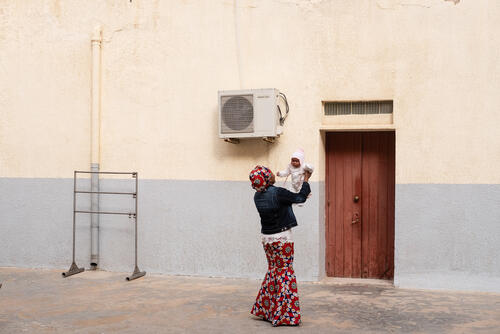
COVID-19 exacerbates healthcare crisis for most vulnerable
As of 1 June, 156 cases of COVID-19 have been confirmed in Libya, including five deaths<a href="https://www.who.int/emergencies/diseases/novel-coronavirus-2019/situation-reports">WHO COVID-19 Situation report</a>. The World Health Organization (WHO) has classified Libya among the high-risk countries in the region. Yet with limited access to healthcare in many areas affected by the ongoing conflict, the current limited testing capacity (with just two testing laboratories in Tripoli and Benghazi), limited contract tracing, difficulties in reaching much of the population, and stigmatisation discouraging people to seek help when they are sick – we fear the number of positive cases could be much higher.
In the wake of the confirmation of the first cases and lockdown announcement, many healthcare centres have closed due to lack of training, unavailability of protective personal equipment or clear instructions and guidelines. In those facilities that are open, there is a lack of medicines, equipment and staff to provide critical services.
Meanwhile, it is not clear whether and how vulnerable groups - such as displaced people, refugees, asylum seekers and migrants in urban settings and official detention centres – will have access to health care services in the case of outbreak.
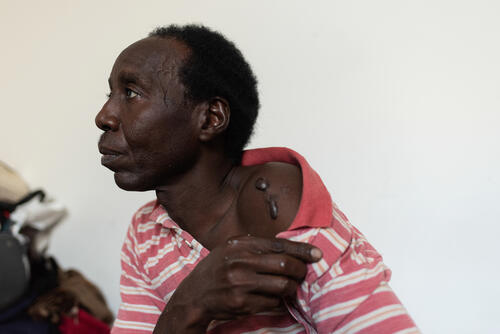
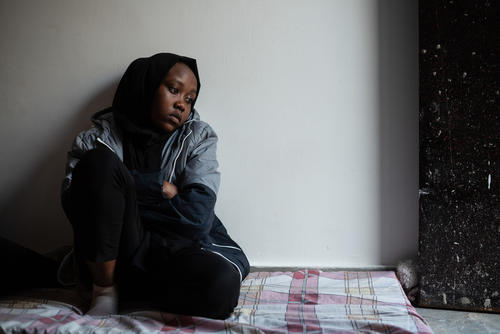
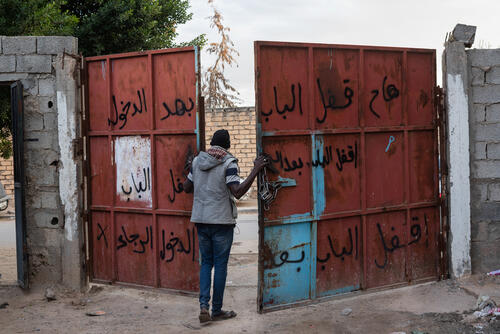
Caught between conflict and COVID-19
We are extremely concerned for all civilians who are at risk of death or injury due to indiscriminate shelling. We are also worried for people who are at risk of contracting COVID-19 or who might face difficulties accessing healthcare for the treatment of other illnesses.
MSF is particularly concerned for the following key groups:
- People with pre-existing conditions: Those who are most at risk of severe forms of the illness include the elderly, but particularly those who also have medical problems, such as diabetes, non-communicable diseases (NCDs), or tuberculosis (TB).
- Internally displaced people: Nearly 40 per cent of displaced people in Libya have acute humanitarian needs due to exposure to physical and mental harm and a partial or total decline in living conditions and access to basic services.
- Refugees, asylum seekers and migrants in detention: The 1,500 people currently held in detention centres across Libya are being detained in over-crowded conditions with poor access to food, adequate water and hygiene and, no actual possibilities for physical distancing. The presence of humanitarian organisations in these detention centres is further reduced due to COVID-19 related movement restrictions and the escalation of the conflict.
- Refugees, asylum seekers and migrants in urban settings: For the hundreds of thousands of refugees, asylum seekers and migrants estimated to be in Libya, the vast majority are living in precarious conditions and are at risk of arbitrary arrest and detention, trafficking, and exploitation. They are also at risk of being caught in fighting or indiscriminate attacks.
- Migrants, refugees and asylum-seekers in need of evacuation/resettlement: UNHCR and IOM have stopped refugee resettlement departures and evacuations out of Libya, leaving the most vulnerable stranded.
- Migrants, refugees, asylum-seekers, and Libyan nationals who have no other option but to take the sea: Currently the only option out of Libya is via the sea. All borders are closed and all repatriation, resettlement and evacuation departures are suspended.
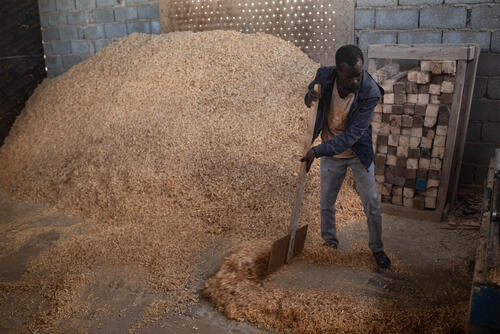
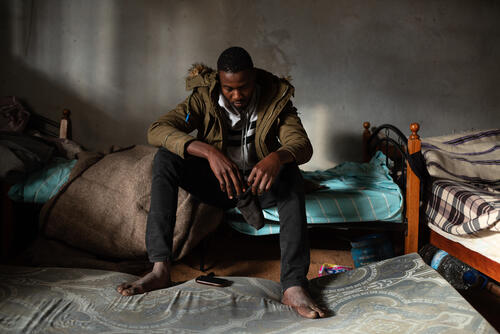
What is MSF doing to help
Our activities in Libya have been impacted by the restrictions and limitations imposed by the COVID-19 response and the escalation of the conflict. At the same time, these very same factors are a reason for increased humanitarian needs in the country. Regardless of the constraints, MSF is committed to continuing supporting people most in need in Libya, and we have intensified efforts to support the national health system cope with the COVID-19 outbreak.
In Tripoli, our teams are:
- providing medical and humanitarian assistance to migrants and refugees in one detention centre, (others have been emptied or closed due to the COVID19 pandemic and the escalating conflict)
- offering medical and humanitarian assistance to migrants and refugees living in urban settings
- conducting COVID-19-related training on infection prevention and control, treatment and awareness raising in multiple hospitals and primary healthcare centres.
In Misrata and the Central Region, our teams are:
- providing basic healthcare, psychosocial support, protection monitoring, and referring individual cases
- distributing nutrition supplements and hygiene kits to refugees and migrants arbitrarily held in detention centres in Souk Al-Khamis, Zliten and Dhar El-Jebel
- providing first aid medical care and distributing non-food items such as blankets at the disembarkation spot in Khoms for people attempting to leave for Europe
- providing primary healthcare and medical referral services in Bani Walid to migrants who escaped from captivity and survivors of torture and trafficking
- providing COVID-19 related trainings to medical staff in Zliten, Misrata, Khoms, Yefren and Bani Walid, as well as reinforcing infection prevention and control measures in detention centres.



